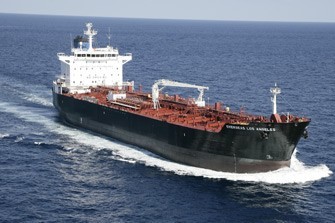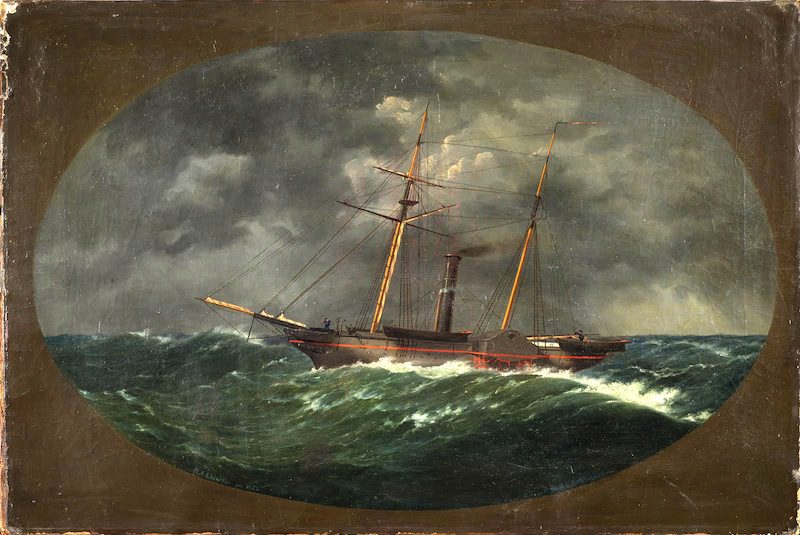OSG’s Jones Act tanker, MT Overseas Los Angeles. Photo: Overseas Shipholding
(Bloomberg) — Overseas Shipholding Group Inc.’s bonds and stocks plunged after the largest U.S. tanker company said in a regulatory filing it’s considering filing for Chapter 11 bankruptcy protection.
Overseas Shipholding is “in the process of reviewing a tax issue” and financial statements since at least 2008 “should no longer be relied upon,” according to a filing from the New York-based company today. The shipping corporation will probably fall out of compliance with covenants in its credit agreements, including a loan-to-value requirement, CreditSights Inc. analysts Roger King and Brian Foster wrote in an Oct. 17 note.
Its $300 million of 8.125 percent notes due March 2018 plummeted 16.25 cents to 35.5 cents on the dollar as of 10:10 a.m. in New York, according to Trace, the bond-price reporting system of the Financial Industry Regulatory Authority. The bonds traded as high as 79.48 cents in April, the data show.
The shares slumped 62 percent to $1.23 as of 12:19 p.m. local time, valuing the company at $38 million.
Overseas Shipholding board director G. Allen Andreas III resigned on Sept. 27 from the company as a result of a disagreement “as to the process the board is taking in reviewing a tax issue,” according to an Oct. 3 filing from the company.
The company is “evaluating its strategic options, including the potential voluntary filing of a petition for relief to reorganize under Chapter 11 of the bankruptcy code,” according to today’s filing.
Carrier Rates
Rates for very large crude carriers, each hauling 2 million barrels of oil, plunged 55 percent to $14,320 a day this year, according to Clarkson Plc, the world’s largest shipbroker.
Overseas Shipholding has a fleet of 111 ships, including 13 very large crude carriers. It may have a cash-flow shortfall of $170 million over the next 12 months and faces the February maturity of its $1.5 billion credit facility, Evercore Partners Inc. analyst Jonathan Chappell wrote in a note.
A slump in tanker rates has reduced the values of the vessels and led to last year’s reorganizations of Frontline Ltd and General Maritime Corp.
Frontline, the Hamilton, Bermuda-based owner led by Norway- born billionare John Fredriksen, said it would split in two to avoid a rout in rates. General Maritime, which operates in more than 230 ports in more than 70 countries, filed for bankruptcy in November.
Torm A/S, a Danish owner which specializes in hauling gasoline, said Oct. 2 it handed over a 73 percent stake to banks in return for a new debt deal.

 Join The Club
Join The Club











